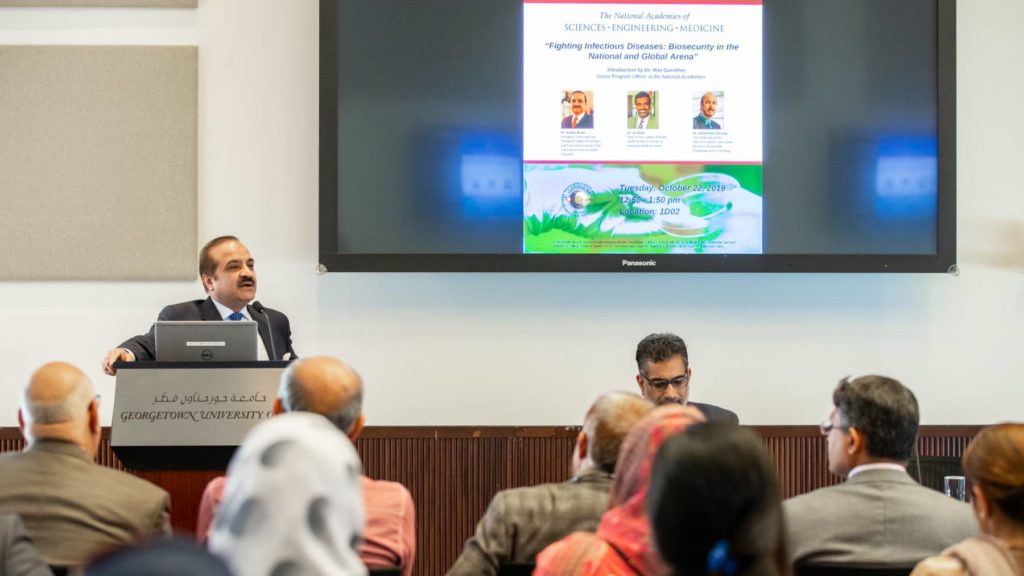National Academies Panel on Biosecurity Brings Together Natural and Social Scientists

A recent panel presentation on “Fighting Infectious Diseases: Biosecurity in the National and Global Arena,” co-organized with the US-based National Academies of Sciences, Engineering, and Medicine (NASEM) and the Pakistan Academy of Sciences (PAS), brought together leading figures in biosecurity and biosafety to discuss the shared responsibility of meeting the challenges to public health and national security.
Focusing on the concept of “One Health,” the recognition that human health is intrinsically connected to the natural environment, the panelists shared ongoing initiatives and strategies in three main areas of study: biosafety, biosecurity, and bioethics. They stressed the need for a collaborative, multinational, and interdisciplinary approach that works at the local, regional, national, and global levels, in order to prevent the spread of large scale disease outbreaks and the weaponization of infectious microorganisms and hazardous biological materials. The event also drew attention to the role of the social sciences and humanities in providing research and critical skills for the next generation of leaders in the field.
In his opening remarks at the event, the dean of GU-Q, Dr. Ahmad Dallal, stressed the university’s focus on the study of interactions between people, communities, and nations that play an important role in understanding the challenges posed by biosecurity threats. “As an institution dedicated to research and service to humanity, we are helping to foster dialogue and encourage research and attention devoted to some of the greatest challenges of our time.”
Panelists included Maj. Gen. Dr. Aamer Ikram, president of the Pakistan Biological Safety Association and executive director of Pakistan’s National Institute of Health, Dr. Ali Khan, dean of the College of Public Health at the University of Nebraska Medical Center, and Dr. Zabta Khan Shinwari, vice chairman of the UNESCO-World Commision for Ethics of Scientific Knowledge and Technology.
The panel was introduced by Georgetown alumna and Senior Program Officer at the National Academies, Dr. Rita Guenther, who holds an M.A. and a Ph.D. in History from Georgetown University.
At the conclusion of the event, Dean Dallal and GU-Q’s Senior Assistant Dean for Research Support, Dr. Kai-Henrik Barth, who was the event organizer, were presented with a copy of the “Good Clinical Laboratory Practices in Pakistan.” A collaboration of NASEM and PAS, the recently launched handbook aims to serve as an informational guide for clinical laboratories in order to improve the standards under the One Health concept with a focus on missing elements in curricula in the life sciences.